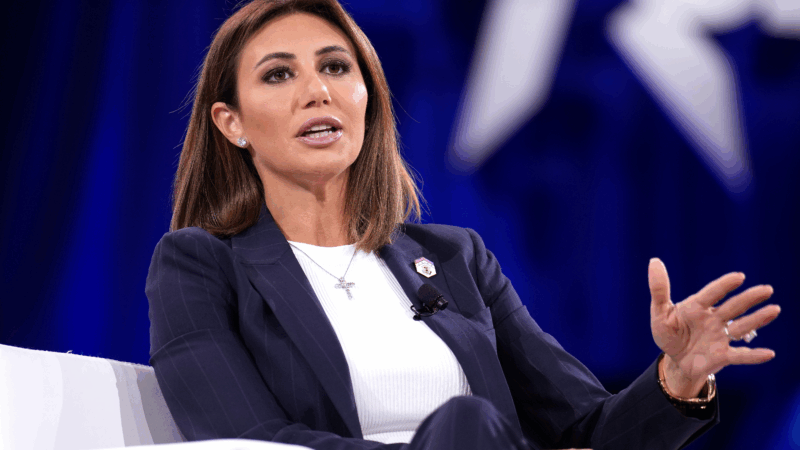A second federal judge has ruled to block the Trump administration’s spending freeze
A federal judge in Rhode Island has ruled to extend a block on the Trump administration’s attempt to freeze payments for federal grants and other congressionally approved government programs from taking effect.
Thursday’s preliminary injunction is the second by a federal court blocking the spending freeze. The order marks a victory for Democratic attorneys general from 22 states and the District of Columbia, who filed suit against the Trump administration over its efforts to pause trillions of dollars in government spending in order to evaluate whether those programs aligned with President Trump’s policy goals.
In his ruling, U.S. District Judge John McConnell Jr. said the spending freeze “fundamentally undermines the distinct constitutional roles of each branch of our government.”
“The interaction of the three co-equal branches of government is an intricate, delicate, and sophisticated balance—but it is crucial to our form of constitutional governance,” McConnell Jr. said. “Here, the Executive put itself above Congress. It imposed a categorical mandate on the spending of congressionally appropriated and obligated funds without regard to Congress’s authority to control spending.”
While the decision represents a rebuke of the spending freeze, the preliminary injunction only applies in the states that brought the challenge.
The administration is expected to challenge the ruling, as President Trump has previously indicated he would appeal court decisions involving this work.
The case was brought against the administration in late January after the Office of Management and Budget released a memo ordering the pause. Almost immediately, the memo sparked widespread confusion, as recipients of federal assistance scrambled to make sense of what the order might mean for everything from Medicaid payments to funding for schools, hospitals and shelters. The White House then rescinded the memo, but vowed to continue its spending review.
Within days of the original memo, McConnell Jr. issued a temporary restraining order against the administration’s effort and in early February, said that the administration was failing to fully comply with his decision. In a court filing, the Trump administration argued that the temporary restraining order did not “Unambiguously Extend” to certain spending because it was paused under a separate OMB memo.
In arguments last month, McConnell Jr. pressed and at times pushed back against an attorney for the Justice Department who argued on behalf of the administration that the freeze was legal and fell within the president’s power. The plaintiffs argued that the move was carried out unconstitutionally and that if implemented, would have massive ramifications for many social programs and projects.
The administration is battling another legal challenge over its effort. A federal judge in Washington D.C., overseeing a separate case brought by a coalition of nonprofit groups, issued a temporary injunction against the funding freeze in late February.
The freeze is part of a broader effort by the administration — with the aid of Trump adviser Elon Musk – to dramatically restructure the federal workforce and slash government spending. The administration has moved to fire tens of thousands of federal workers and effectively shutter multiple government agencies and departments.
Many of these actions have sparked legal challenges. In some cases, courts have ordered the administration to restore funding, but the administration has also sought to maneuver around these orders.
In the Rhode Island case, those efforts were brushed back by Thursday’s decision. In a separate case involving foreign aid payments, the administration won at least a temporary victory on Wednesday when the Supreme Court upheld a lower court’s decision ordering the government to restore roughly $2 billion in payments.
When Christmas is a little too bright … look to Krampus
If Santa Claus is the good cop of Christmas, then Krampus is the bad one: a creature from European folklore who scares children into behaving themselves, complete with goat horns and gnashing teeth.
Syria marks a year since Assad fled, but struggles to heal
Syria is struggling to heal a year after the Assad dynasty's repressive 50-year reign came to an end following 14 years of civil war that left the country battered and divided.
Former Trump attorney Alina Habba resigns as top federal prosecutor in New Jersey
Habba's decision comes as the Justice Department has lost a string of court cases ruling that U.S. attorneys have not been appointed legally, including in Nevada, California and Virginia.
Trump administration announcing $12 billion in one-time payments to farmers
Trump administration announcing $12 billion in one-time payments to farmers
Maureen Corrigan’s 10 favorite books of 2025 — with plenty for nonfiction lovers
Fresh Air's book critic says her picks tilt a bit to nonfiction, but the novels that made the cut redress the imbalance by their sweep and intensity. Karen Russell's The Antidote was her favorite.
FBI agents sue after being fired for kneeling during racial justice protest
The FBI agents kneeled during a protest in 2020 not to reflect a left-wing political view, but to de-escalate a volatile situation, they say in court papers. The FBI fired them in September.







